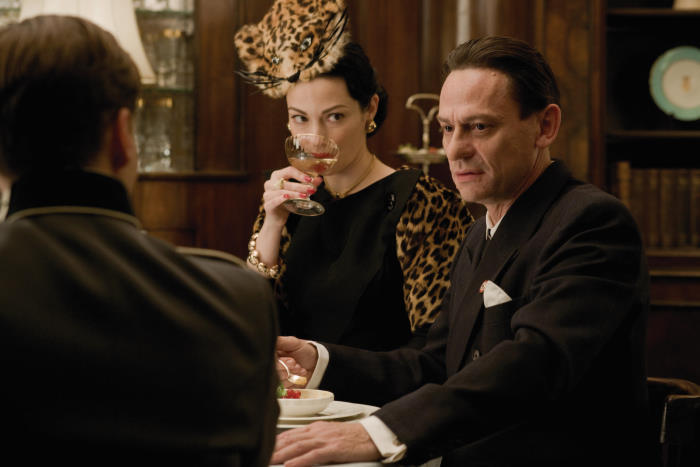Paul Joseph Goebbels (29 October 1897 - 1 May 1945) was a German politician and Reich Minister of Propaganda in Nazi Germany from 1933 to 1945. He was one of German dictator Adolf Hitler's closest associates and most devout followers, eventually succeeding him as Chancellor of Germany, an office he held for only one day, carrying out one offic...
Show more »
Paul Joseph Goebbels (29 October 1897 - 1 May 1945) was a German politician and Reich Minister of Propaganda in Nazi Germany from 1933 to 1945. He was one of German dictator Adolf Hitler's closest associates and most devout followers, eventually succeeding him as Chancellor of Germany, an office he held for only one day, carrying out one official act: sending a delegation to seek a ceasefire with the Russians. Goebbels was known for his zealous oratory and anti-Semitism. He was the chief architect of the Kristallnacht attack on the German Jews, which historians consider to be the commencement of the Nazi violence culminating in the Holocaust.Goebbels earned a Ph.D. from Heidelberg University in 1921, writing his doctoral thesis on 18th-century romantic drama; he then went on to work as a journalist and later a bank clerk and caller on the stock exchange. He also wrote novels and plays, but they were refused by publishers. Goebbels came into contact with the Nazi Party in 1923 during the French occupation of the Ruhr and became a member in 1924. He was appointed Gauleiter (regional party leader) of Berlin. In this position, he put his propaganda skills to full use, combating the local socialist and communist parties with the help of Nazi papers and the paramilitary SA. By 1928 he had risen in the party ranks to become one of its most prominent members.Goebbels rose to power in 1933 along with Hitler and the Nazi party, and he was appointed propaganda minister. One of his first acts was the burning of books rejected by the Nazis. He exerted totalitarian control over the media, arts, and information in Germany. In that position, he perfected the Big Lie technique of propaganda, which is based on the principle that a lie, if audacious enough and repeated enough times, will be believed by the masses.From the beginning of his tenure, Goebbels organized attacks on German Jews, commencing with the boycott of 1933. His attacks on the Jewish population culminated in the Kristallnacht assault of 1938, an open and unrestrained pogrom unleashed by the Nazis all across Germany, in which scores of Synagogues were burned and hundreds of Jews were assaulted and murdered. ( Kristallnacht refers to the broken glass spread on the streets, as the Nazis smashed the windows of thousands of Jewish businesses.)Goebbels used modern propaganda techniques to manipulate and psychologically prepare the German people for aggressive war and the annihilation of civilian populations. Among other propaganda devices, he accused Germany's victims (such as the Poles, the Jews, the French) of trying to destroy Germany, claiming that Germany's belligerent actions were taken in self-defense.During World War II, Goebbels increased his power and influence through shifting alliances with other Nazi leaders. By late 1943, the tide of the war was turning against the Axis powers, but this only spurred Goebbels to intensify the propaganda by urging the Germans to accept the idea of total war and mobilization. Goebbels remained with Hitler in Berlin to the end, and following the F
Show less «



